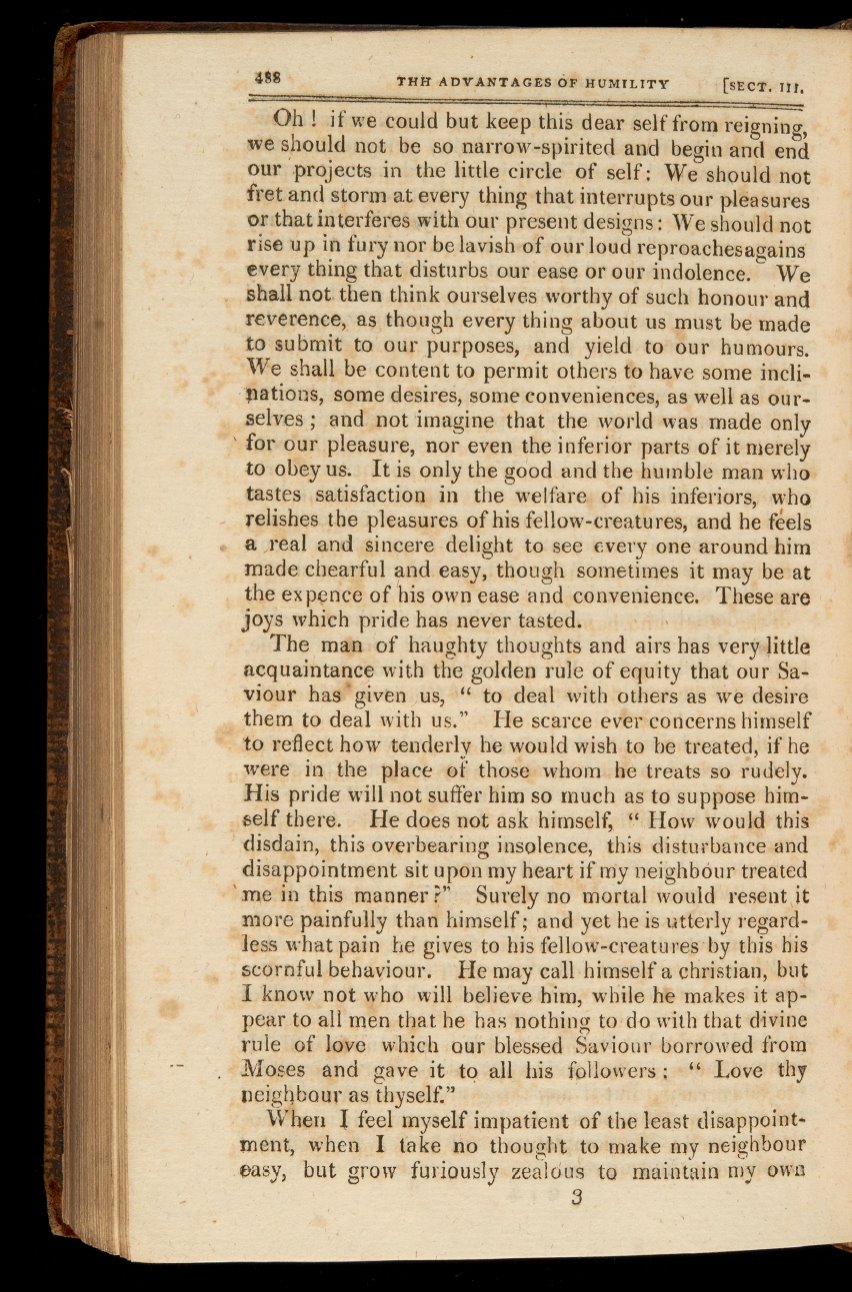

498
?HIT ADVANTAGES
OF
HUMILITY
[SECT.
M.
Oh
!
if
we
could
but
keep this
dear
self from
reigning,
we
should not
be so
narrow
-
spirited
and
begin
and end
our
.projects in
the
little circle of self
:
We should not
fret
and storm
at
every
thing
that
interrupts our
pleasures
or that interferes
with
our present
designs
:
We should
not
rise up
in
fury nor
be
lavish
of
our
loud
reproachesagains
every thing that disturbs our
ease
or our
indolence.
We
shall
not,
then think
ourselves worthy
of
such
honour
and
reverence,
as
though every thing
about
us
must
be
made
to
submit to
our
purposes,
and yield
to
our
humours.
We
shall
be
content
to
permit others
to have some incli-
rations,
some desires, some conveniences, as
well as
our-
selves
;
and
not
imagine
that
the
world
was
made
only
for our
pleasure,
nor
even
the
inferior parts
of
it
merely
to
obey
us.
It
is
only the good
and the humble man
who
tastes satisfaction
in the welfare
of
his
inferiors,
who
relishes the pleasures
of
his fellow-
creatures, and
he feels
a
,real and sincere delight to
see
every one
around
him
made chearful and
easy,
though
sometimes
it
may
be
at
the
ex
pence
of
his own
ease
and convenience. These are
joys
which
pride
has
never tasted.
The
man
of
haughty thoughts and airs
has very little
acquaintance
with
the
golden
rule
of
equity
that
our
Sa-
viour
has
'given
us,
" to deal
with
others
as we desire
them
to
deal
with
us."
He
scarce ever concerns himself
to
reflect how
tenderly
he would
wish to
be
treated,
if
he
were
in
the place
of
those
whom
he
treats
so
rudely.
His pride
will
not
suffer him
so
much
as
to
suppose
him-
self
there.
He
does
not
ask himself,
How would
this
disdain, this overbearing
insolence, this
disturbance
and
disappointment
sit upon
my
heart if
my
neighbour treated
me
in
this
manner
?"
Surely
no
mortal
would
resent,it
more
painfully than
himself; and yet
he
is
utterly
regard-
less
what pain
he gives to his fellow
-
creatures
by
this
his
scornful behaviour. He
may call
himself
a Christian,
but
I
know
not
who
will
believe
him,
while he makes
it ap-
pear
to all men
that
he
has nothing
to
do
with
that
divine
rule of
love which
our
blessed
Saviour
borrowed from
Moses and
gave
it
to
all his followers
;
"
Love
thy
neighbour
as thyself."
When
I
feel
myself
impatient of
the
least
disappoint-
ment,
when
I take
no
thought
to make
my
neighbour
easy,
but
grow
furiously zealúus
to
maintain
my own
3

















